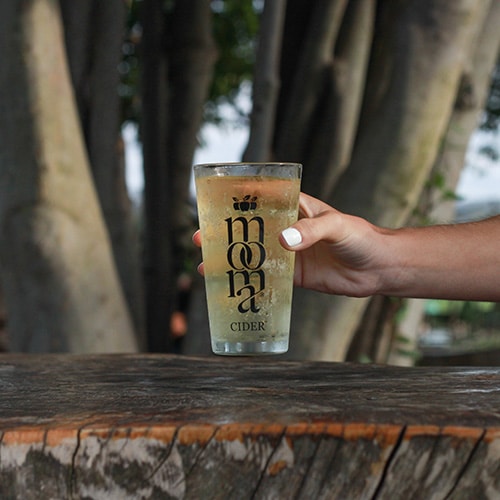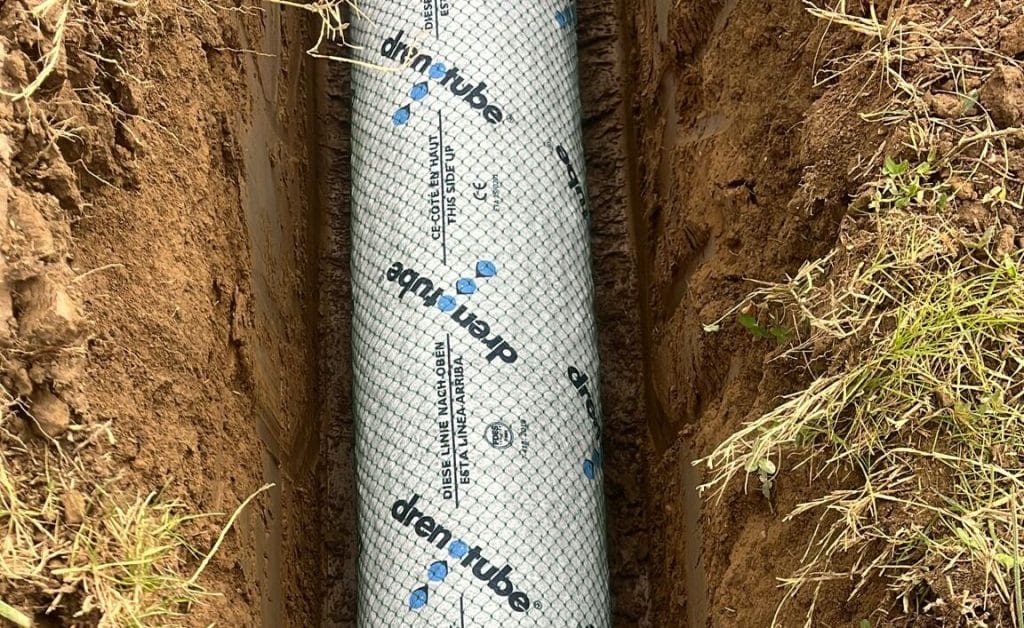Mooma: Preserving traditions at Girona

A Family Legacy Transformed into Innovation

In the heart of Empordà, surrounded by the Montgrí Natural Park, the Medes Islands, and the Baix Ter, lies Mooma, a company that has elevated a family tradition to a whole new level. For three generations, this family has been cultivating apples in fertile lands where the proximity to the Mediterranean and the richness of the soil create optimal conditions for production.
But their story goes beyond fruit cultivation. In 2016, after years of research and refinement, they decided to take a step further and launch Catalonia’s first cider. Inspired by the American model, they developed a fresh, natural, and low-alcohol beverage, crafted through a meticulous process of selection, pressing, and fermentation of the apples.
A deep respect for nature and a commitment to offering the highest quality products have been the cornerstones of their philosophy. Beyond cider production, they have expanded their range to include single-variety juices, apple vinegar, and other delicacies derived from their harvest. Each year, their production is carefully adapted to climatic conditions and the optimal harvest moment, proving that patience and adaptability are key to their business model.
However, maintaining a balance between tradition and innovation comes with challenges. One of them was directly impacting their production: water accumulation in their plantations.
The Challenge: Inefficient Drainage Threatening the Apple Orchards
Mooma’s apple orchards are the heart of their business. The quality of the fruit depends on multiple factors, and one of the most critical is water management. While irrigation is an essential ally in production, excess moisture can quickly become a threat.
For several seasons, the company struggled with water stagnation in different areas of their fields due to insufficient drainage. Prolonged water accumulation affected soil oxygenation, weakening the apple trees’ roots and compromising their growth and productivity.
In an initial attempt to address the issue, they turned to traditional drainage systems. However, these methods failed to provide an effective solution, as in certain areas, water was still not filtering properly, causing puddling that put the stability of the crops at risk.
Finding a sustainable, efficient, and long-lasting solution became a top priority for the company.

The Solution: An Efficient and Adaptable Drainage System
To tackle this challenge, 396 meters of a 160 mm diameter drainage system were installed—a solution specifically designed to handle large volumes of water without compromising the soil structure. Thanks to its high infiltration capacity, this system enables efficient water evacuation, preventing saturation and ensuring optimal soil oxygenation.
The choice of this system was not only driven by the need to prevent waterlogging but also aligned with Mooma’s values of sustainability and environmental responsibility. Unlike traditional methods, this system does not require gravel, reducing the environmental impact associated with material extraction and transportation. Additionally, its quick and hassle-free installation minimized disruption to orchard operations.

Results: From Waterlogged Soil to Efficient Drainage
Since the system’s installation, the transformation has been evident. Areas that previously suffered from water accumulation now manage rainfall efficiently, maintaining the optimal water balance needed for the healthy growth of apple trees.
Although there are no exact metrics, the perceived benefits have been clear:
- Elimination of waterlogging issues and improved soil oxygenation.
- Quick and hassle-free installation, with no need for major earthworks.
- Maintenance-free system, ensuring long-term optimal performance.
- Greater peace of mind for growers, thanks to a reliable solution aligned with their environmental commitment.

A Step Forward in Sustainable Water Management
Mooma’s case is a clear example of how the right solutions can protect crops, optimize water resources, and preserve a region’s ecological balance. By adopting an efficient drainage system, the company not only solved an immediate issue but also reinforced its long-term sustainability vision.
As water management becomes an increasingly complex challenge for agriculture, it is crucial to continue exploring technologies and strategies that optimize its use without compromising productivity or the environment.
Projects like this demonstrate that tradition and innovation can go hand in hand, ensuring that family-run businesses with decades of history can continue to grow without losing their essence.
